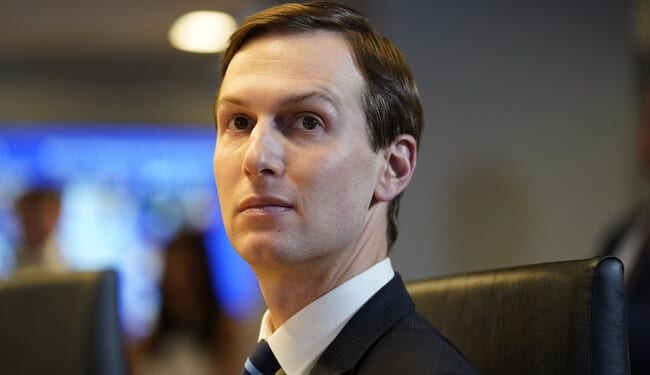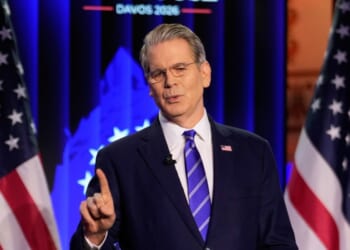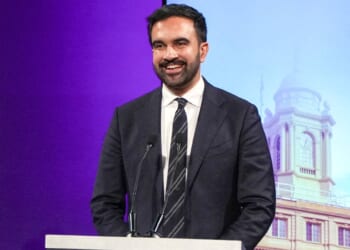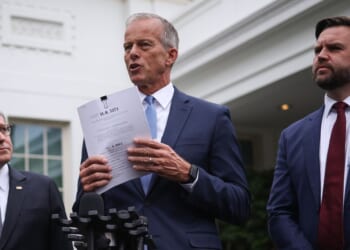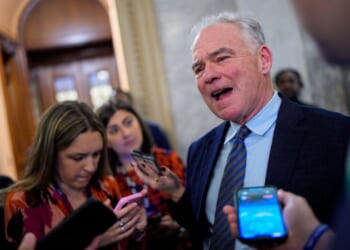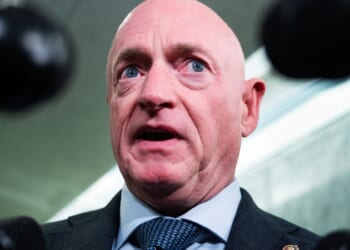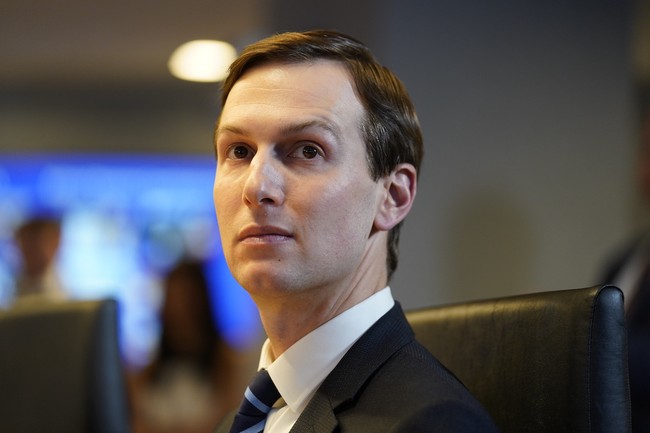
Diplomats have dominated “peacemaking” in the Middle East since…forever.
Or at least that was true until Donald Trump came into office, broke all the diplomatic rules, and started cutting deals. If there is any policy area where Trump’s style of governance has been derided so badly by the “experts” while his record is so stellar, I can’t think of it.
As I have said before, well before I began to admire Trump’s (still mixed) record on domestic policy issues, I concluded that Trump was the best foreign policy president since Reagan and Bush the Elder, who together ended the Cold War–which presented an existential threat to the West–without any blood being spilled.
.@SteveWitkoff and @jaredkushner at the Western Wall pic.twitter.com/5DkxczVbWf
— Amit Segal (@AmitSegal) October 10, 2025
Trump’s record as a peacemaker is, frankly, astounding. While the Trump administration rightly points to the many conflicts he has been addressing in its second term, its most lasting accomplishments will be moving the Middle East peace process forward. The Abraham Accords make the Camp David Accords appear as difficult a deal to close as the selling of a suburban home compared to building the Burj Khalifa, and somehow managing to make a deal between Israel and Hamas–including all the major governments in the region–makes that deal look relatively easy.
Exciting progress on Middle East. Go @jaredkushner https://t.co/5MrCvCPvd3 pic.twitter.com/maHdObU4Gu
— Elad Gil (@eladgil) October 10, 2025
At the center of the dealmaking has been Jared Kushner. Kushner was an unlikely candidate for roving ambassador to the Middle Eastern Arab governments. He is, after all, an Orthodox Jew and a real estate guy. He was widely derided by all the Best™ people who ridiculed him for his youth and inexperience, and who no doubt thought that a Jew fronting for an administration that had moved the US embassy to Jerusalem after decades of promises during campaigns, but deferrals recommended by the diplomats, was simple nepotism.
They all made fun of Jared Kushner, but he has now secured two major Middle East peace deals where all his predecessors failed.
What does that say about those predecessors and their supposed “expertise,” along with a press who gargles credentials while ignoring results? pic.twitter.com/u37SEdBCbg
— Bonchie (@bonchieredstate) October 10, 2025
Yet, when the chips were down, it was Kushner who, along with Trump and Steve Witkoff–another Jew–closed the deal.
Last Friday, when Jared Kushner heard that Hamas would begin talks to release Israeli hostages, he was fielding calls at his mansion, which sits on a man-made island just north of Miami. He jumped into his car and drove the 20 minutes to another mansion — this one owned by the billionaire Steve Witkoff, President Trump’s Middle East peace envoy.
In those crucial moments, the Trump administration’s diplomatic power center was not in Washington but in one of the wealthiest enclaves in Florida.
The two real estate developers, charged with closing the deal on a prime piece of Mr. Trump’s foreign policy ambitions, got to work setting up a command center, where they made and fielded calls from stakeholders, including an impatient president and cabinet members in the Israeli government.
The stage had been set for a peace deal earlier that week, when Prime Minister Benjamin Netanyahu had agreed with Mr. Trump on a 20-point proposal for pursuing a peace agreement.
With terms that largely favored Israel, it was still unknown whether Hamas would sign on and agree to release hostages or relinquish control of the enclave. As the deadline for Hamas to respond ticked closer, Mr. Trump warned Hamas fighters that thousands of them had already been killed, and that many more would be if they did not agree to a deal.
Hamas said hours later that it would begin talks to release hostages.
While he was working alongside Mr. Witkoff in Miami, Mr. Kushner’s advice to the Israelis was not to worry about the rest of the militant group’s statement, which did little to assuage Israeli concerns that Hamas would refuse to give up its arms or political control of Gaza. Mr. Kushner was focused on the first part of the statement, which meant hostages could soon come home.
“Steve and I said to Israel, ‘We encourage you to be positive as well,’” Mr. Kushner recalled in an interview. In phone calls, the Israelis had been telling them that Hamas would outright reject any deal. “‘This is a time to be positive,’” Mr. Kushner reiterated.
Hours later, the office of Prime Minister Benjamin Netanyahu of Israel said that it would agree to begin carrying out the first phase of Mr. Trump’s peace plan.
Internationalists focus, quite wrongly, on our relations with European allies. Trump annoys them no end, and that, for some reason, is seen as a crisis and betrayal. Such thinking is a holdover from the 20th century, when the continent erupted into devastating wars and the Soviet Union was an existential threat and could plausibly invade Western Europe.
🇺🇸🐌 US Permanent Representative to NATO:
If you had placed a snail on the border between Russia and Ukraine, it would have been in Poland in three and a half years. And they haven’t even gotten 20%.
This demonstrates how ineffective, incapable, and incompetent the Russian… pic.twitter.com/3bngJ8bsm8
— MAKS 25 🇺🇦👀 (@Maks_NAFO_FELLA) October 9, 2025
Russia is a shadow of its former self, amounting to a gas station with nukes that may, or may no longer, work, and which doesn’t have the capacity to move faster than a snail in taking Ukrainian territory. Our European allies are, or should be, little more than satraps of the United States because they are so politically, economically, and militarily weak that they would collapse without the United States, and are in the process of collapsing with us backing them.
Q: “How did the White House decide that it is appropriate for Jared Kushner to be working on matters that involve Qatar, the UAE, Saudi Arabia—three countries that combined have given him more than $2.5 billion for his investment firm?”
Leavitt: “I think it’s frankly despicable… pic.twitter.com/Fcm7EMBQoY
— The Bulwark (@BulwarkOnline) October 1, 2025
The Middle East, on the other hand, is a permanent thorn in our side, and the Arab-Israeli conflict has been a permanent irritant, keeping the wound raw. Strategically, it matters because of oil, nuclear ambitions, terrorism, and trade chokepoints. When people deride American interests being driven by oil, they are factually correct and appallingly naive. Oil makes the world go around–modern society would collapse without inexpensive oil–and ignoring its importance would be insane.
If you know anything about how the Abraham Accords was achieved in Trump’s first term, you’ll instantly recognize the similar blueprint in this Hamas deal.
It has Kushner’s DNA all over it.
Highly recommend @BarakRavid’s book and @lexfridman’s interview with Jared himself https://t.co/bGeFy7JojG
— Melissa Chen (@MsMelChen) October 9, 2025
OF COURSE, the US would go to war over oil, just as we would go to war if a foreign power tried to choke off access to food, water, or air.
Before I determine the validity of your statement regarding Jared Kushner, can you please list your foreign policy accomplishments – or any other accomplishments, really – so I can ensure you have the credibility to make this critique?
Thanks in advance. https://t.co/0iCi0Bz0P2
— RBe (@RBPundit) October 10, 2025
The diplomats have failed at every turn to address the problems there successfully, or even worse, exacerbated them. April Glaspie famously gave Saddam Hussein the green light–accidentally–to invade Kuwait. Look at how that turned out.
For many years, i thought Jared Kushner was just a trophee husband for Ivanka. I was so wrong.
I learned more about him and what i found is stunning: he is a true Jedi master, a superhero of diplomacy and a tough businessman and negotiator as well as a highly respected figure… https://t.co/psekuaOmAE
— Ouriel 🇮🇱 (@OurielOhayon) October 10, 2025
Diplomats, like all “experts,” are hidebound in their ways, and in normal times or facing normal problems, their ways serve a purpose. But time and again, we see that when things are bad, they are utterly incapable of meeting the challenges.
Trump was right to put his faith in non-diplomats to deal with the Arab countries and Hamas.
Of course, the “experts” and diplomats will still hate on Trump and Kushner, but they don’t care about facts on the ground; but maintaining their authority and defending their “expertise.”
Diplomats are not brain surgeons whose expertise is integral to their ability to get results; they are people who use well-worn techniques that either apply or don’t in particular circumstances, and are usually incapable of understanding when they might work.
Facts on the ground, not process, matter. Unless you are a member of the expert class, who function similarly to bureaucrats for whom checking boxes matters, accomplishing real things, not so much.
Will Kushner, Witkoff, and Trump go down as some of the great peacemakers in history? Probably not.
History is, after all, written by experts. And by now, we should know they care about defending their perks, prerogatives, and reputation far more than doing good in the world.
Editor’s Note: The Schumer Shutdown is here. Rather than put the American people first, Chuck Schumer and the radical Democrats forced a government shutdown for healthcare for illegals. They own this.
Help us continue to report the truth about the Schumer Shutdown. Use promo code POTUS47 to get 74% off your VIP membership.

